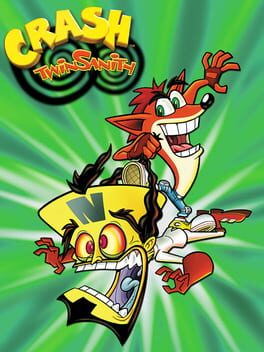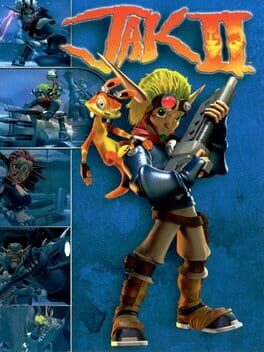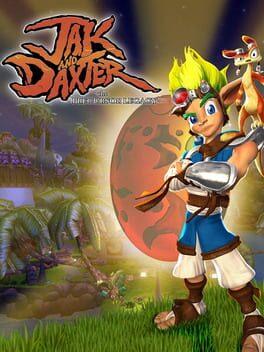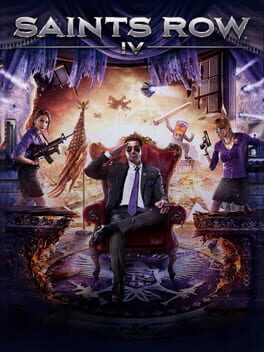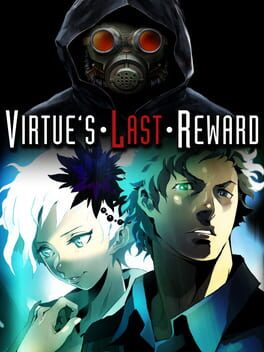StabbedCat
2020
2019
2003
2019
It's hard to know what to say once you finish a work as unique as this. It seems the type of game to have its fair share of detractors claiming it doesn't do anything that differently, but that is to view it only on the level of a traditional RPG, which this is anything but.
The denseness of the work, combines with the non-traditional way of following quests and passing checks, gives meaning to seemingly minor decisions, creating a wonderful tapestry of a world, a city, a man.
I love this to pieces, and I feel like there are so many different ways of playing, but I like the thought of my single playthrough being definitive, so I may just leave it there.
The denseness of the work, combines with the non-traditional way of following quests and passing checks, gives meaning to seemingly minor decisions, creating a wonderful tapestry of a world, a city, a man.
I love this to pieces, and I feel like there are so many different ways of playing, but I like the thought of my single playthrough being definitive, so I may just leave it there.
2004
The sheer fore of personality held by Twinsanity is both its greatest strength and what most obviously reveals its weaknesses. The game is unfinished, very obviously so, and the game going from elements that are excellently crafted to some of the laziest parts of the series on serves to underline this.
The game is happy to joke about this, but I am very much of the school that pointing out your own faults does not excuse said faults. The longer the game goes on, the more it becomes obvious just how great it could have been. Nina becomes a throwaway, the final act is visibly hurried, and lots of the cutscenes just don't feature any sound. This would be an absolute scandal in today's market, but at least it could eventually be fixed with matches. Twinsanity is instead an admittedly enjoyable indication towards what could have been.
I appreciate the new directions that Twinsanity took, but I find people saying it is better than Wrath of Cortex confusing, given that this is half a game on all counts, and Wrath of Cortex feels complete and coherent. Still, this has some great moments, but they can only ever be moments.
The game is happy to joke about this, but I am very much of the school that pointing out your own faults does not excuse said faults. The longer the game goes on, the more it becomes obvious just how great it could have been. Nina becomes a throwaway, the final act is visibly hurried, and lots of the cutscenes just don't feature any sound. This would be an absolute scandal in today's market, but at least it could eventually be fixed with matches. Twinsanity is instead an admittedly enjoyable indication towards what could have been.
I appreciate the new directions that Twinsanity took, but I find people saying it is better than Wrath of Cortex confusing, given that this is half a game on all counts, and Wrath of Cortex feels complete and coherent. Still, this has some great moments, but they can only ever be moments.
2003
Not the most rewarding replay. Vehicle mechanics are great and when the game is more pure platforming it is really rather excellent. Sadly it has a rather unjustified focus on gunplay, and a somewhat artificial feeling of brutality. It did an okay job of worldbuilding, but in hindsight I was more in awe of what I saw in Jak 1, without the game even really needing a plot to hang anything against.
Replaying this one was an intriguing experience, not least because for all of the joy I remember it bringing, I forgot that it was such an early game in the PS2 catalogue, and the 3d platforming is still pretty janky. The fact that you control the camera with an inverted x axis is probably its greatest flaw, but the camera being a solid object that cannot move past certain obstacles is also likely to kill you a few times.
Still though, executing a double spin jump is crisp, and getting that animation whenever you get another power cell never really gets old, because Jak and Daxter: The Precursor Legacy ultimately is a game about exploration, and the power cells come from having mastered some new aspect of level exploration. More than anything else, as a simple kids game, Jak and Daxter is a game that teaches you to explore. The way that the menu gives you hints about power cells eggs you on to go further, to find everything.
Sure, you don't have to explore everywhere, and each new zone has a minimum number of power cells, but from an early stage the game feels like it is daring you to get them all, and the world is engaging enough that you know you want to. By the time you reach the volcanic crater, and that one fucking box is laughing at you, you know that it won't be spoiling your perfect record.
Jak and Daxter teaches exploration, not least because the collectibles are necessary for the continuation of the story, but also by never really being too opaque. Every power cell is within grasp, and the game basically tells you how to get them without ever really holding your hand. It sets you on the path and dares you to figure everything out, before finally really testing you in its later stages. It is ultimately a game whose difficulty is not based in boss fights or platforming, but in the exploration through which it defines itself from the start. Despite some jankiness, it is an excellent teacher.
Still though, executing a double spin jump is crisp, and getting that animation whenever you get another power cell never really gets old, because Jak and Daxter: The Precursor Legacy ultimately is a game about exploration, and the power cells come from having mastered some new aspect of level exploration. More than anything else, as a simple kids game, Jak and Daxter is a game that teaches you to explore. The way that the menu gives you hints about power cells eggs you on to go further, to find everything.
Sure, you don't have to explore everywhere, and each new zone has a minimum number of power cells, but from an early stage the game feels like it is daring you to get them all, and the world is engaging enough that you know you want to. By the time you reach the volcanic crater, and that one fucking box is laughing at you, you know that it won't be spoiling your perfect record.
Jak and Daxter teaches exploration, not least because the collectibles are necessary for the continuation of the story, but also by never really being too opaque. Every power cell is within grasp, and the game basically tells you how to get them without ever really holding your hand. It sets you on the path and dares you to figure everything out, before finally really testing you in its later stages. It is ultimately a game whose difficulty is not based in boss fights or platforming, but in the exploration through which it defines itself from the start. Despite some jankiness, it is an excellent teacher.
2013
I do think that, like the last one, the ending shits the bed somewhat, and gets caught up in whatever dumb narrative it had created for itself, but importantly VLR understands that what is most interesting about it is how the following of different routes is integral to the narrative, and not simply different little things to collect, as is the case with many VNs. THe slow drip feed of the plot was excellent, until the end when it all sort of comes crashing down.
Regardless, I have seen few games that actively interrogate the player's role in a narrative and their ability to shape it. It improves on 999 tenfold by making the puzzles significantly harder, the art style better, and the plot actually make sense. I am sure that I will eventually get around to Zero Time Dilemma.
Regardless, I have seen few games that actively interrogate the player's role in a narrative and their ability to shape it. It improves on 999 tenfold by making the puzzles significantly harder, the art style better, and the plot actually make sense. I am sure that I will eventually get around to Zero Time Dilemma.




